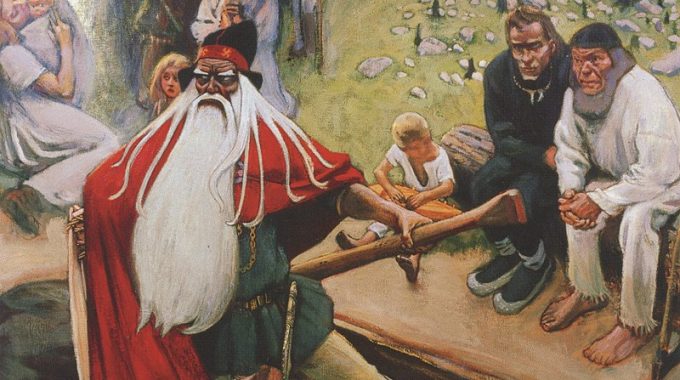
The roots of Finland: between myth and reality
A version of this article by Cédric Placentino was first published for the Canopy of Prayer, a prayer movement for Europe. We publish here an extended version of it.
“Finnish people are the happiest in the world”. That at least is what the recent World Happiness report concluded. Moreover, the whole world praises the Finnish education system. Economically Finland is one of the most prosperous nations in the world.
And yet Finland is a land with very little raw material as well as a hostile climate, elements which, from a purely materialistic point of view, are considered as necessary for an economy to thrive. How is it, then, that Finland succeeded in becoming so successful today? What are the roots of such a success? The secular narrative explains that the roots of our European societies (such as democracy) are to be found in Greece and Rome, ignoring the overwhelming contribution of Christianity through the centuries.
Such a narrative also exists in Finland. The Departure of Väinämöinen is a nineteenth- century painting that confirms this point of view. The colourful scene in front shows a long-bearded manleaving with a boat. Actually the character is not a man, but a god of Finnish pre-Christian paganism called Väinämöinen (who might have been the source of inspiration for R.R. Tolkien’s character Gandalf in his famous novels The Hobbit, The Lord of the Rings and the Silmarillion). Next to him are two men and a little boy with an unclear face playing the Finnish national instrument, the kantele.
The second, bleaker scene in the background depicts many serious, pale people worshipping a mother with a little baby. The artist of this painting, Akseli Gallen-Kallela, seems to communicate that Christianity robbed Finland of its cultural roots in paganism. Even though Gallen-Kallela doesn’t try to link the roots of Finnish culture to Greece and Rome, there is nevertheless a clear attempt to diminish the impact and tarnish the reputation of Christianity in Finland.
Such a myth actually removes Finland from the very roots that gave life to the nation. Finnish paganism, with its emphasis on nature worship, kept people in servitude, as man can never subdue what he worships. In a nation where nature and climate can be quite hostile to humanity, paganism (which worshipped these very elements) obviously couldn’t empower the Finns to subdue them. Thus it is clear that we cannot possibly trace the roots of the Finnish success to pre-Christian paganism, as the secular narratives seem to suggest.
Christianity really was the liberating factor for the development of the Finnish society.
When the first Finnish people came into contact with Christians (most probably from Sweden), they discovered that they were made in the image of a God who was above nature. Moreover, this God was the creator of nature and climate. And he had given authority to humanity to subdue (that is to master and take care of) the earth. Humans were not meant to fear nature but to be able to control it. Sin had robbed humanity from that authority, but Jesus’ redemptive work at the cross gave back that very authority to humanity. This narrative of redemption through the atoning work of Jesus Christ was the turning point of Finnish history. Finns didn’t need to fear nature and climate. Rather they knew now to be empowered to master and take care of these elements.
Christianity came to Finland through Catholicism from the West (Sweden) and Orthodoxy from the East (Russia) in the beginning of the second millennium. In the sixteenth century, the country adopted the Reformation. The centuries of influence of the Gospel in this nation gave Finland its communities, a written language, literacy, education, healthcare and political organisation, to name but a few. These elements were all fruits of the Gospel among the Finns.
Today’s secularised Finland is cut off from its roots. Just like a tree without roots, secularism is doomed to die. Here lies an opportunity for the Finnish Church to present the Gospel by showing the wonderful impact it has had on the history and present prosperity of the nation.
Let us pray:
• that Finnish people would remember and return to God;
• that the Finnish people would realise how much God has done for them in their history;
• that the Finnish Church would seek God’s wisdom for the issues that Finland is facing today.
Cédric Placentino
Schuman Centre convener for Italian and French Europe

This Post Has 0 Comments